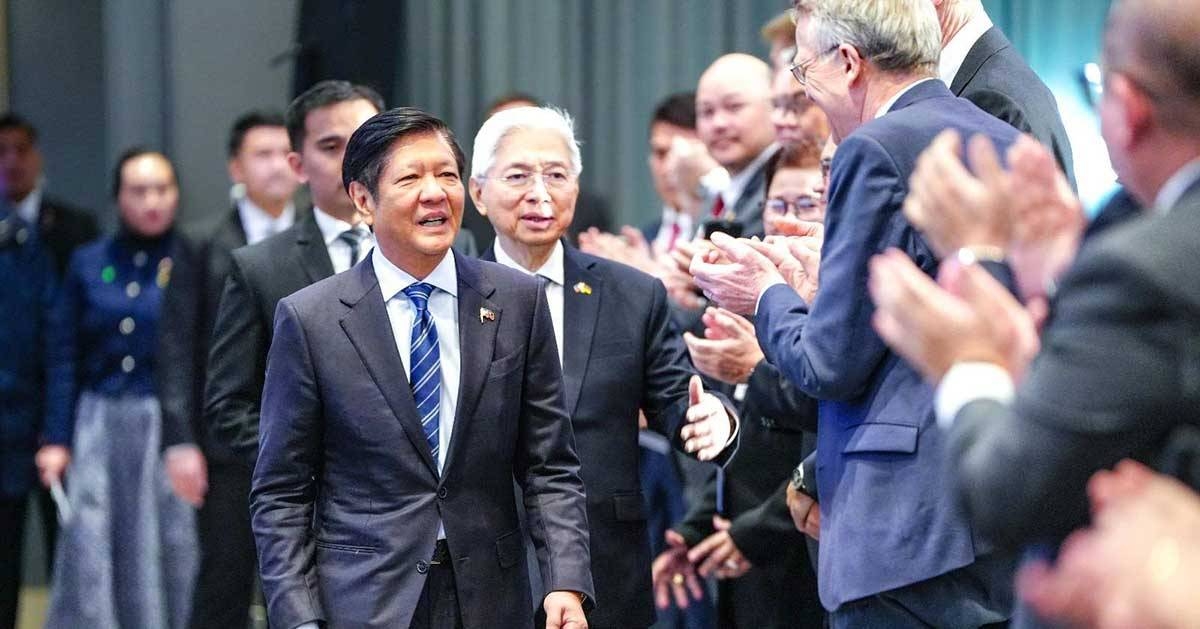President Marcos Jr. Promotes Fair Labor Practices and Dignified Treatment of Filipino Workers
In a recent visit to Berlin, President Ferdinand Marcos Jr. emphasized the importance of strengthening partnerships with countries that host Filipino workers. The aim is to promote fair labor practices and ensure the dignified treatment of Filipino workers abroad. This commitment reflects the Philippine government’s dedication to protecting the rights and welfare of overseas Filipino workers (OFWs).
During his visit, President Marcos Jr., accompanied by First Lady Marie Louise “Liza” Araneta-Marcos and his delegation, met with thousands of Filipinos living and working in Germany. The meeting served as an opportunity to engage with the Filipino community and address their concerns.
President Marcos Jr. assured OFWs that his administration is actively working to guarantee their respect and dignity. He emphasized the government’s efforts to create economic growth and employment opportunities both within the Philippines and abroad. By implementing programs that generate sustainable livelihood opportunities in the provinces, the aim is to reduce the necessity for Filipinos to seek employment overseas.
To support OFWs, the Department of Migrant Workers has launched various initiatives. These include the establishment of a one repatriation command center and the introduction of a 24/7 OFW helpline (1348). These resources aim to provide assistance and support to OFWs in times of need.
Additionally, the government has implemented a reintegration program for returning OFWs and offers educational assistance to their children. President Marcos Jr. expressed his tireless dedication to ensuring that Filipino workers are treated with the respect and dignity they deserve. Through these programs and initiatives, the government strives to protect their rights, welfare, and overall well-being.
President Marcos Jr. also acknowledged the significant contributions of OFWs to the Philippine economy. He highlighted that remittances from Filipinos abroad reached a record-high of $33.5 billion last year. These contributions are invaluable and have earned OFWs the title of “bagong bayani” or modern heroes.
The Philippine embassy in Germany estimates that approximately 35,000 Filipinos work in various industries, including healthcare, information technology, hospitality, and academia. Their expertise and dedication play a crucial role in the German workforce.
Furthermore, President Marcos Jr. expressed his commitment to attracting foreign business leaders to invest in the Philippines. By encouraging investment and the establishment of manufacturing plants, the government aims to boost the economy and address labor issues, such as Germany’s worker shortage.
President Marcos Jr. believes that by providing incentives to foreign businesses, they will be motivated to build factories in the Philippines. This approach not only benefits the economy but also keeps Filipino workers close to their families, reducing the need for them to seek employment abroad. The president emphasized that the Philippines has a skilled, hardworking, and trustworthy workforce that foreign businesses can rely on.
In conclusion, President Marcos Jr.’s visit to Berlin highlighted the Philippines’ commitment to promoting fair labor practices and ensuring the dignified treatment of Filipino workers. The government’s efforts to create economic growth and employment opportunities within the country aim to reduce the need for Filipinos to seek work overseas. Through various initiatives and programs, the government strives to protect the rights, welfare, and overall well-being of OFWs. The significant contributions of OFWs to the Philippine economy are recognized and appreciated, earning them the title of modern heroes.
Source: The Manila Times








